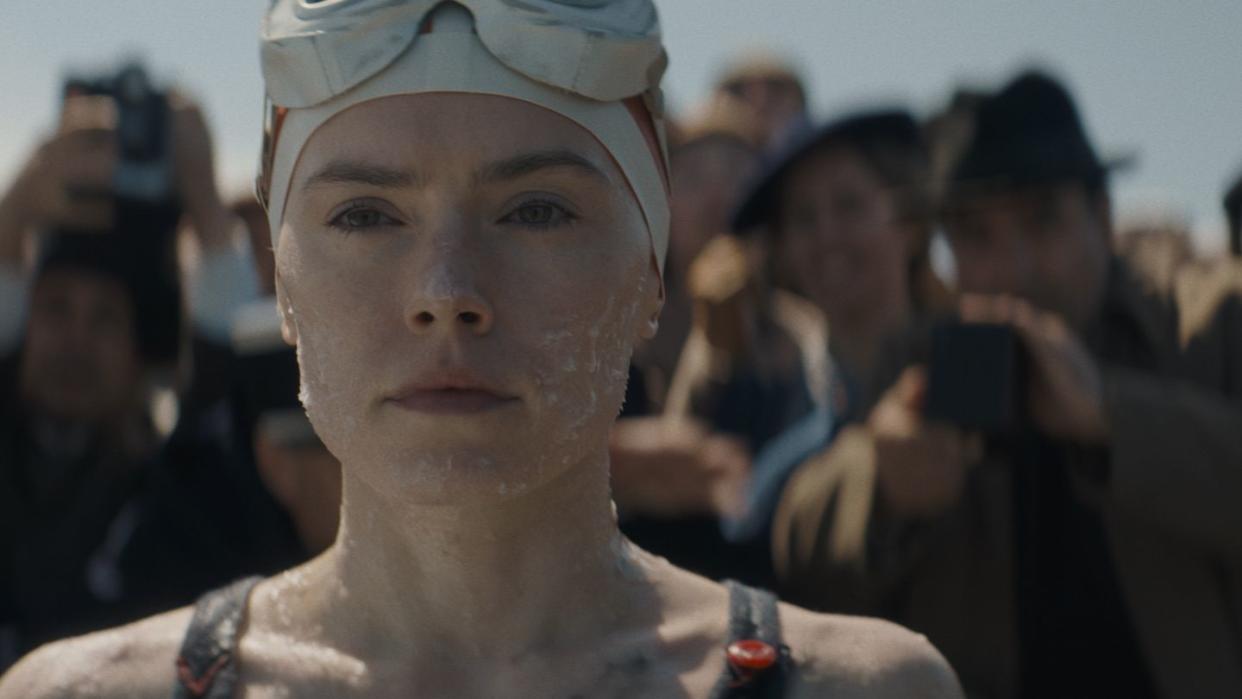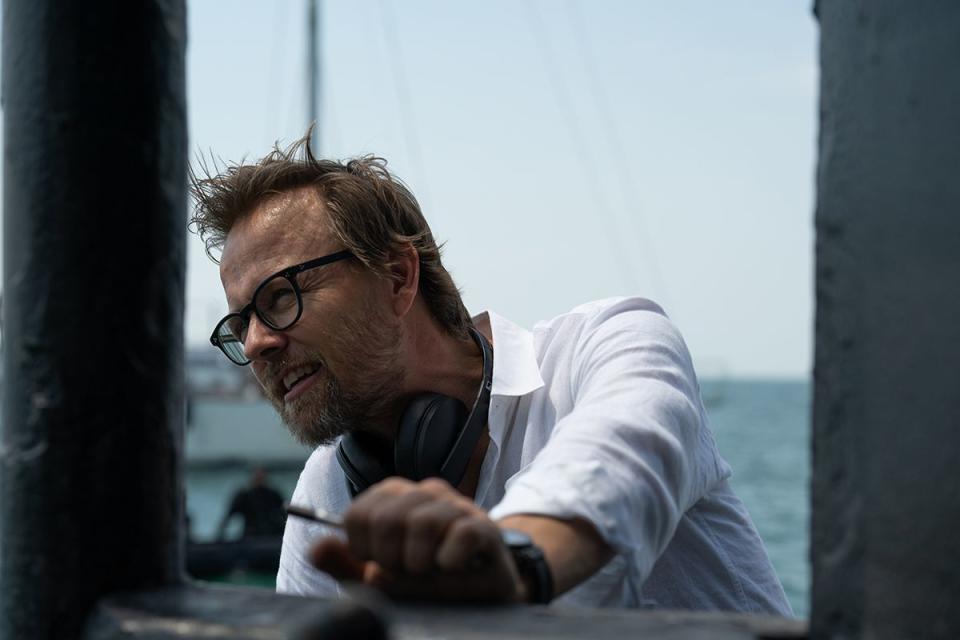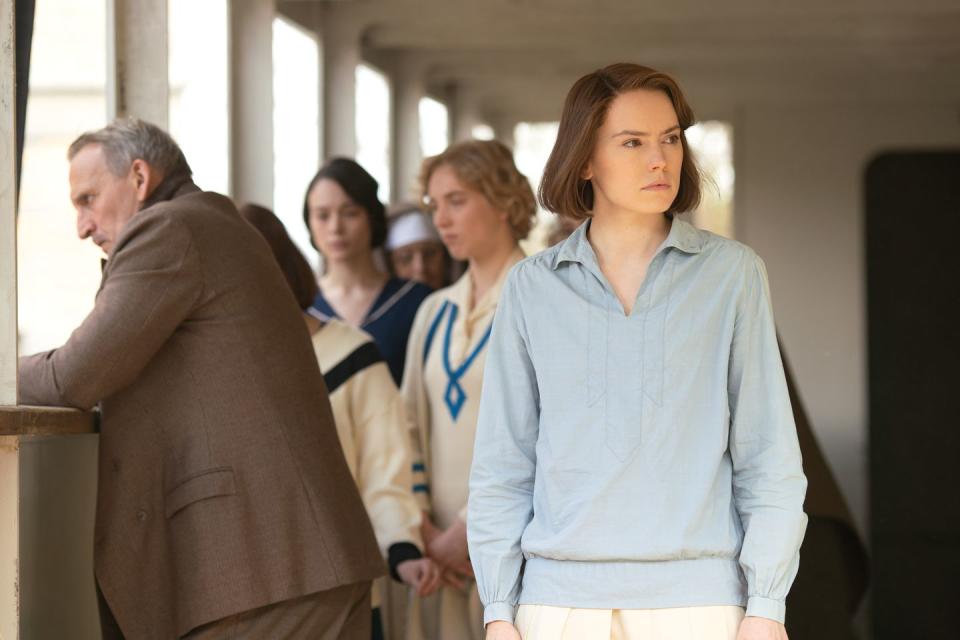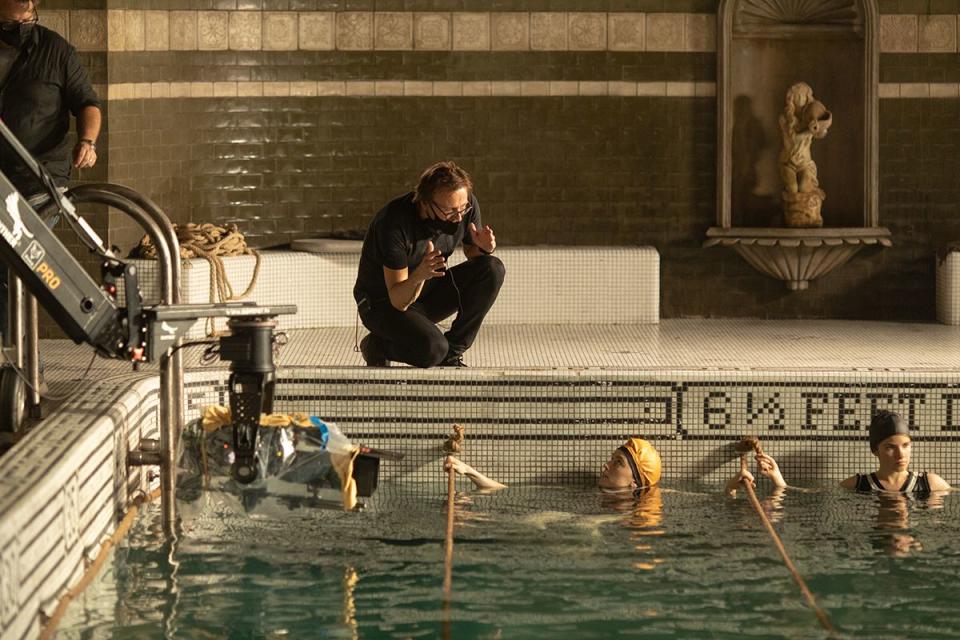How Joachim Rønning Got Back in the Water

For an athlete of her accomplishments—which include an Olympic gold medal, numerous world records, and the distinction of being the first woman to swim across the English Channel—Trudy Ederle has never quite received the recognition she deserves.
While the champion swimmer died in 2003 at the age of 98, this week her posthumous fortunes will change with the release of Young Woman and the Sea, a thrilling biopic telling her life story, from fighting to join an amateur swim team in her native New York City to the ticker-tape parade that welcomed her home after she crossed the Channel. The movie, which stars Daisy Ridley as Ederle, is not just a look at a once-in-a-generation athlete, however, it’s also an eye-popping call to arms for anyone with a seemingly impossible dream who’s warned about flying too close to the sun.

It's fitting that the making of the film was itself a passion project for director Joachim Rønning, who first heard about Ederle almost a decade ago. The filmmaker (whose previous projects include Kon-Tiki and Maleficent: Mistress of Evil) was adamant that telling Ederle’s story correctly required the time and investment to do it correctly—that is, without the sort of special effects and shortcuts on which so many film rely—and for a very good reason. “I wanted to tell a story,” he says, “about a girl who changed the world.”
Here, Rønning tells T&C about his fascination with the swimmer, the sometimes rough waters of filmmaking, and whether he’d dare race his leading lady.
How did you begin working on this project?
It goes way back. I was shooting Pirates of the Caribbean: Dead Men Tell No Tales in Australia in 2015, and Jeff Nathanson was the writer, so we were in Australia for a long time together. One day he started talking about this story about the Glenn Stout book and I just immediately flipped for it. But being in the chaos of a big franchise for the first time in my career, it got lost a little bit until a year later, Jeff had a script—and it was the best script I ever read, honestly. I just said, “I would love to do this.” Then, seven years later, we shot it.

What was it about the story that hooked you?
I love biopics. I am a history buff, and I've done a couple of biopics in my career. But I had never heard this story before, and even though it took place a hundred years ago, I thought that it was still a very relevant story. The most important thing for me was that I had—and still have—two teenage daughters, so I wanted to tell a story about a girl who changed the world.
So, you find the perfect story, you have a great writer, and then you have to make this story that takes place in New York and England and France a century ago. Where do you begin?
Luckily, we had a secret weapon called Jerry Bruckheimer. Maybe it’s not so secret, but in my book, he's one of the best producers out there, and when he wants to make something, he can make something like this happen. Still, it wasn't easy. We shopped it around for quite a while until Disney had an interest in doing this—and hopefully they will again. I feel very lucky that we managed to make the film in today's movie climate.

What are the challenges of making a film like this?
The first thing we had to do was to find our Trudy. When Daisy Ridley came on board, it fell into place for me, seeing her and how she embraced that character. It was amazing to see her process. But from a technical point of view, it was very important for me to film on water. I wanted to do this for real, and I don't know why I have that urge to punish myself and the crew, but that was very important for me; it was a deal breaker. There was talk about how we can do it on a stage on with green screen or in a tank, and I said, “I'm not going to do that.”
I think the audience can feel in the film that it’s real, that Daisy is swimming in the water. She swam in the real ocean until her lips turned blue and fought through it like a hero. That was very important to do for me. It's hard to do it, but I'm so proud.
Not everything could be real. How did you recreate that era of New York City?
It's a period piece about New York a hundred years ago. I had previously filmed in Sofia, Bulgaria to capture New York in that period, so I brought that up with production and we discovered that they had expanded the New York streets at this old Soviet-era film studio. We ended up in Bulgaria because of that, shooting on the Black Sea. We were 200 miles from Ukraine when the war broke out, so it had its challenges, but I really believe it was worth it.
We’ve had a number of biopics about aquatic athletes recently. What makes swimming a sport that helps convey a message?
I think it's a coincidence that there have been other swimming movies out there. Sports movies in general, though, are about the triumph of the human spirit—the “Chariots of Fire” of it all. I feel that they're exciting and very often they are true stories, so there is a fascination with people who risk their lives to not only conquer an obstacle, but to make a point, because the goal is so much bigger than themselves. The world needs that sometimes.
Are you a good swimmer?
Well, I can swim and I love it. I grew up by the ocean, I grew up sailing, so that fascination with the water is always what draws me back. For some reason, I end up making ocean movies, but it is truly a love of mine.
Who would win in a race, you or Daisy Ridley?
Oh, Daisy. 100%. I mean, she got so good. She was training with Siobhan-Marie O'Connor, who's an Olympic medalist. The two of them were training for months for this movie, and Daisy learned ocean swimming and even beat our swimming doubles. I didn't want to use the swimming doubles because you could see that when Daisy was in the water, she was such a force., I wouldn't have a chance, forget about it.
You Might Also Like


